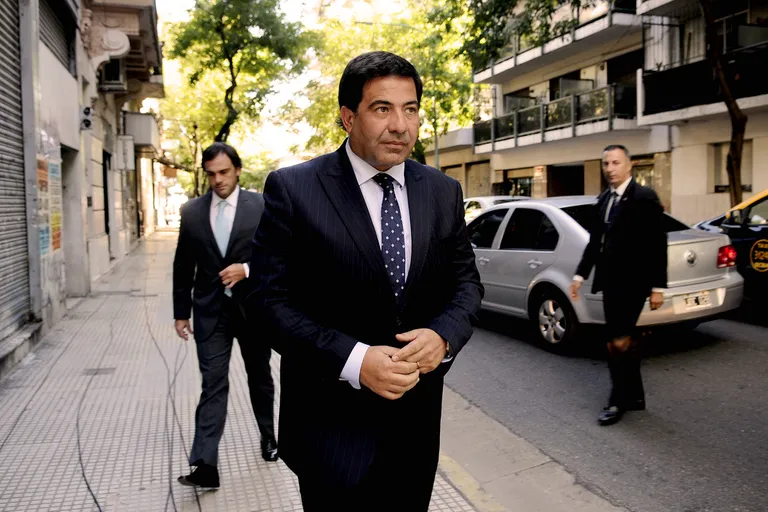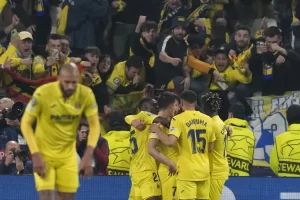
The acquittal of López and De Sousa: for the judges, they did not exceed “the threshold of what is allowed” and “took care of their property”
The Justice admitted that the holding company of the Indalo Group was sustained thanks to intercompany loans to the detriment of State resources, but acquitted its owners Cristóbal López and Fabián de Sousa because it considered that they used a right when requesting facility plans payment to the AFIP. Instead, regarding the conduct of Ricardo Echegaray, who was convicted, the judges considered that he granted those payment plans irregularly and that he “squandered tax credit.” Federal Oral Court 3 announced today the foundations of the sentence it issued last December in the case known as Oil Fuels. This ruling, of high political voltage, is not final and now that the arguments of the judges have become known may be appealed to the Criminal Cassation Chamber by the Public Prosecutor’s Office. The majority vote was made up of Fernando Machado Pelloni and Javier Feliciano Rios, who adhered to the position of the first. In the minority, the judge Andres Basso asked to apply sentences for businessmen as well. “The total evidence produced conclusively proved that Ricardo Daniel Echegaray, through actions and omissions that caused damage to the Public Administration and that deprived the perception of his credits in a timely manner, put into operation a mechanism (in)formal in the field of administrative organization, for the purpose of granting particular plans for payment facilities, which diluted the possibility of controlling the only requirement that article 32 of Law 11683 imposed as a condition for granting those novations”, introduced the majority. And I add: “In this way, subtracting from the faculties that as Federal Administrator it had under its orbit of competence, in the case of Oil Combustibles SA (first private plan) and the companies of the Indalo group (second private plan), it granted payment plans in a manner irregular and, consequently, squandered tax credit”, they said in the vote that marked Echegaray’s conduct as criminal.The magistrates during the oral trial against Ricardo Echegaray, Cristóbal López and Fabián de SousaCIJHow did Machado Pelloni and Ríos argue the acquittal of López and De Sousa? They said that De Sousa and López made use of their “economic freedom” and that they “protected the right to their property.” And they added that its operations did not cross “the threshold of what is permitted.” “The financing operations of Oil Combustibles SA and the business group of which Carlos Fabián de Sousa was the administrator as management leader, and Cristóbal Manuel López was one of the majority shareholders, although risky, and completely adverse to the event evaluated with the intraneus position, does not cross even a little the threshold of what is allowed”, the majority wrote. About López they said: “He was a shareholder, without intervention in the decisions on how to carry out or execute the business plan. And, although it does not have argumentative twists that it should especially attend to, nothing changes about the facts proven in this trial, the little or enormous shareholding, nor that the named person is publicly associated with the group of companies.” “The conduct of De Sousa advance is different, maguer [aunque] its consequence continues to be liberatory, the same in sum as that of his associate López”, they affirmed, to add: “They only used a right to request payment facility plans, without using arduous means, central to the punishable act.” Ricardo Echegaray Archivo Contrary to that of his colleagues, Basso attributed López and De Sousa criminal responsibility for the events. “My conclusion is radically different, since I understand that the contribution they made so that the fraud of the public administration is configured has been essential, because without their contributions we would not be in the presence of any crime”, he introduced. And in another section of his vote, he said that “they lacked the truth regarding their economic situation, to access the private payment plans before the AFIP, which otherwise would not have been able to prosper.”Echegaray was accused of having allowed López and De Sousa to accumulate more than $8 billion in debt for the transfer tax on liquid fuels.. He was considered by the accusation as co-author of the maneuver, while López and De Sousa were accused of being necessary participants in the crime of fraud by fraudulent administration aggravated for having been committed to the detriment of the public administration. The prosecutor Juan Patricio Garcia Elorrio had proven that there was a symmetry between the figures accumulated by Oil Combustibles as debt with the amounts transferred as intercompany loans to Group firms that were not related to the provisions of article 32 of Law 11,683, which regulates the Granting of private payment plans.
Ricardo Echegaray Archivo Contrary to that of his colleagues, Basso attributed López and De Sousa criminal responsibility for the events. “My conclusion is radically different, since I understand that the contribution they made so that the fraud of the public administration is configured has been essential, because without their contributions we would not be in the presence of any crime”, he introduced. And in another section of his vote, he said that “they lacked the truth regarding their economic situation, to access the private payment plans before the AFIP, which otherwise would not have been able to prosper.”Echegaray was accused of having allowed López and De Sousa to accumulate more than $8 billion in debt for the transfer tax on liquid fuels.. He was considered by the accusation as co-author of the maneuver, while López and De Sousa were accused of being necessary participants in the crime of fraud by fraudulent administration aggravated for having been committed to the detriment of the public administration. The prosecutor Juan Patricio Garcia Elorrio had proven that there was a symmetry between the figures accumulated by Oil Combustibles as debt with the amounts transferred as intercompany loans to Group firms that were not related to the provisions of article 32 of Law 11,683, which regulates the Granting of private payment plans.

